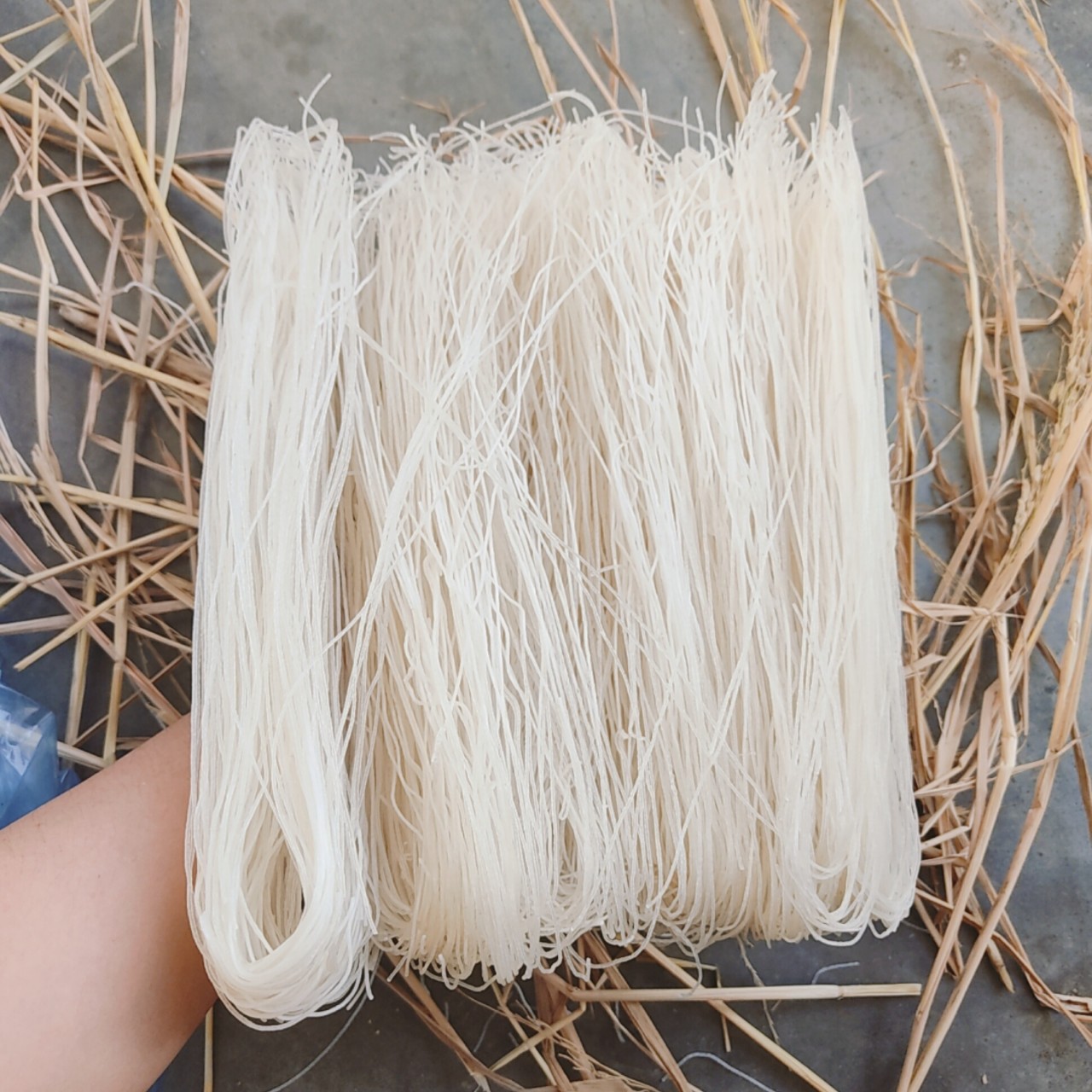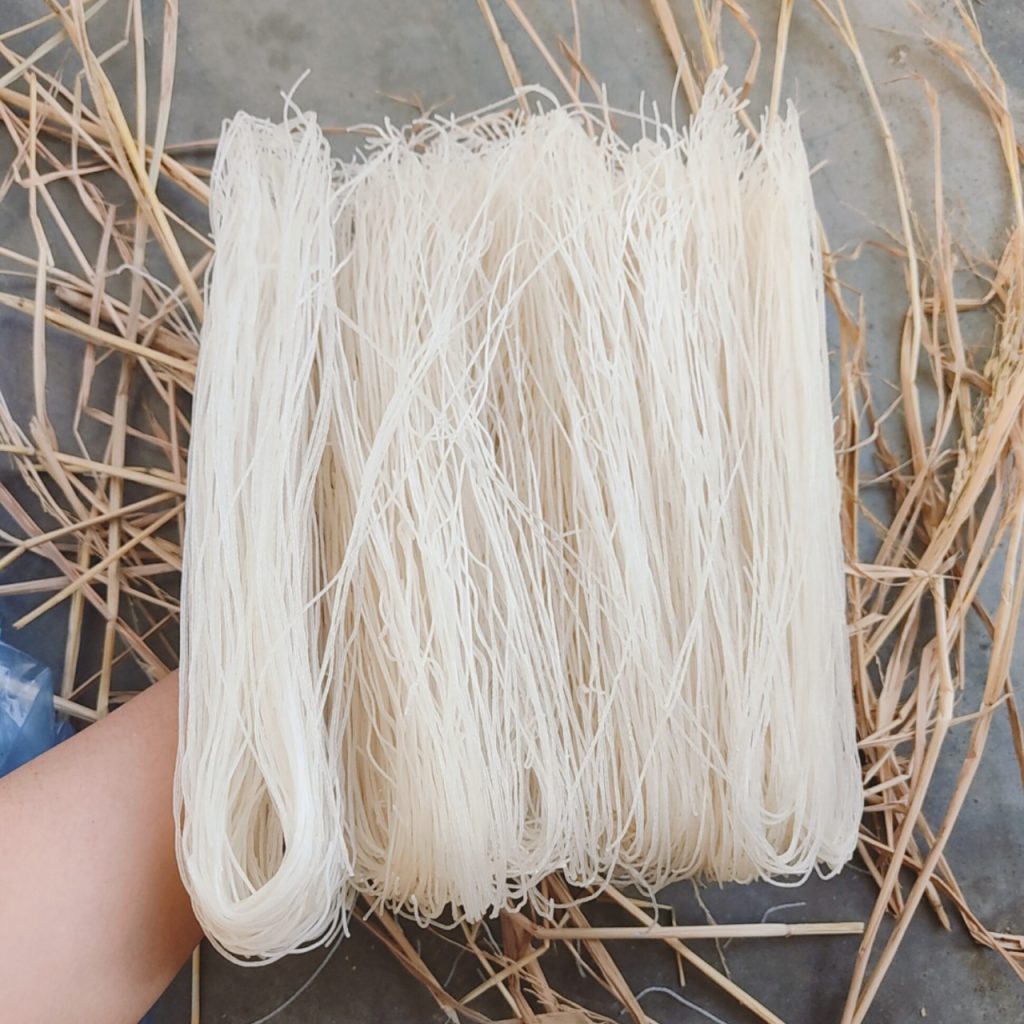Besides dishes with high nutritional content such as fish, meat, vegetables, tubers, etc., products such as dried noodles, vermicelli are a perfect choice for those days when you don’t want to eat rice. With ingredients made from 100% rice, the nutritional value of dried vermicelli will not be different from the amount of starch like rice we eat every day!

Nutritional value of dried vermicelli
Vermicelli with the main ingredient is made from rice, so the nutritional value that vermicelli brings is relatively large, in 100g of vermicelli contains:
- Carbohydrates: 28g
- Calories (Kcal): 130
- Potassium: 35mg
- Lopid: 0.3g
- Sodium: 1g
- Fiber: 0.4g
- Carbohydrates: 28g
- Protein: 2.7g
- Calcium: 10mg
- Iron: 0.2mg
- Magnesium: 12mg.
With sufficient nutrients, vermicelli is not only suitable for non-vegans but also a popular dish chosen by most vegetarians to use.
How to choose dried vermicelli safely
Surely housewives will go to the market or supermarket to buy themselves a few packs of vermicelli to store in the cupboard, maybe to prepare for the morning or for meals the whole family wants to change their taste. Although it is a dried food, it should be carefully preserved to ensure food hygiene and safety, avoiding mold, bacteria accumulation, potential food poisoning risk.
Therefore, consumers should choose vermicelli products with packaging and full labels, observe whether the vermicelli are discolored or appear weeds before buying to keep the nutritional value of it.
How to store dried vermicelli?
– The best storage space for vermicelli is in a dry place, avoiding moisture.
– Although it has been dried, the vermicelli should not be exposed to sunlight. Because sunlight will remove nutrients from the food.
– If you encounter cold weather or wet air, the best way to preserve it is to pack vermicelli and then vacuum them. Or simply put it in a sealed jar to avoid mold and mildew.


 中文 (中国)
中文 (中国)